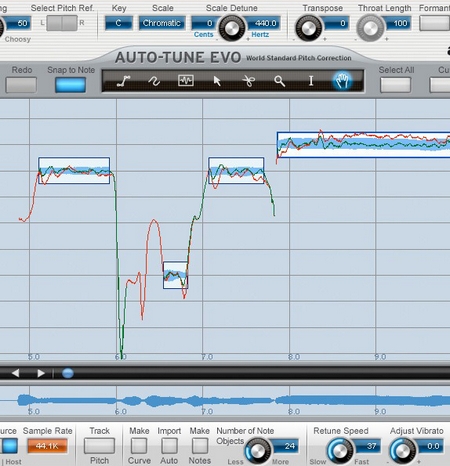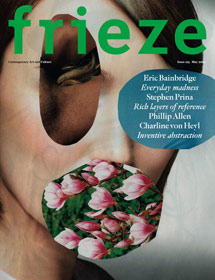The Berbers, cracked audio plug-in software, Donna Haraway circa 1991, Jody Rosen contemplating drained negro emotionalism, a high-end recording engineer, Tallahassee Pain, a Muslim producer named Wary: AUTO-TUNE UNITES US ALL.

This is another way of saying: check out my essay on Auto-Tune for the current issue of Frieze Magazine.
Auto-Tune is something I’ve been thinking about – and chasing after – for awhile now. It was a great pleasure to be able to condense my thoughts on it, which began a half-dozen years or more, picking up auto-tuned Berber music in Barcelona & Madrid.
Vocal purists hate Auto-Tune. They hear in its robotic modulations some combination of sugar-rush novelty, bulldozed nuance, jejune synthetics, loss of ‘soul’, disdain for innate vocal talent, teen-optimized histrionics, emotional anemia, and/or widespread musical decline. It’s ugly.


Jody Rosen is a big T-Pain fan, though.
did you read my piece, Matos? I wasn’t discussing whether or not Rosen is “a big T-Pain fan” (this is unimportant either way), but, instead reflecting on his claim that: “T-Pain represents a kind of symbolic severing of African-American music from its traditional emotionalism […] the impassioned melismas that have powered black popular singing for decades are smoothed into synthetic gasps” and that T-Pain uses the software to “impersonate a computer”.
Loving the WFMU All-Autotune comp a lot more than I expected. “Baako” is one seriously weird tune. The strangest song to use the sound of an infant crying ever?
Very smart piece in Frieze, Jace. But your reading of my Slate piece on T-Pain is way off: you took my comments out of context to set me up as a straw man. You write: “T-Pain’s R&B isn’t the only example highlighting the ‘impassioned melismas’ that Rosen says ‘powered black popular singing’ before Auto-Tune messed everything up.” Nowhere in the Slate piece that you cite — nowhere, moreover, in any of the writing that I’ve done on T-Pain, or auto-tune, or contemporary R&B — do I construe that “Auto-Tune messed everything up.” I am the very opposite of sentimentalist about these things, and am in fact voluminously on record as a champion of production innovation and sonic novelty generally. (I’m also on record as an Auto-Tune fan: lists are dopey, I know, but just for the record “Lollipop” was #1 on my list of top singes of 2008. And “Can’t Believe It,” by the way, was #7. The list is here: http://www.slate.com/id/2206848/entry/2206850/)
The Slate T-Pain piece certainly isn’t my best — not least because, when the piece was written, in July of 2007, I didn’t even realize that T-Pain was using Auto-Tune to produce that vocal effect! (Embarrassing.) But the argument I was making was a bit more nuanced than the pining-for-the-good-old-days line you’re trying to pin on me. Notice that I did say, in the passage you cite above, “T-Pain represents a kind of symbolic severing of African-American music from its *traditional* emotionalism.” The key word here is “traditional” — T-Pain, I argue, represents a different kind of emotionalism, or more to the point, a different *sound* of emotionalism.
If you were looking for a foil, a Google search would surely have turned up plenty of Raphael Saadiq fans fulminating about the Auto-Tune barbarians at the gates. But that’s not my position, not hardly.
I definitely read the piece–and liked it. But for reasons Jody’s already addressed, it struck me as weird that you’d use him (someone who likes Auto-tune a lot) as a negative example. (“He likes T-Pain” isn’t a very thorough defense, you’re right, but yeah, he’s already responded.)
Oops! Wayne was my #2 single. But you get the point.
Thanks for joining the conversation Jody! I referenced your piece b/c it was (by far) the first I’d read to think about auto-tune seriously (even if it didn’t name the effect). And when I saw your phrase about “impassioned melismas that have powered black popular singing for decades are smoothed into synthetic gasps” it struck me as a huge, unqualified, provocative claim. (Why gasps? auto-tuned T-Pain doesn’t gasp, he croons. Melisma powered black pop singing for decades? i’d love to hear more about how.)
You may feel like a straw man because you’re misreading my use of “messed everything up”. I wasn’t using “messed everything up” in a pejorative sense. I was employing it as description about what auto-tune has done to categories of humanity, the digital, voice, and virtuosity (it messes them up!); as a way of thinking about the cyborg interface created, which was why I quoted Haraway’s seminal essay, zooming in on the bit about confusing borders. Both she and I are using these terms of impurity etc in a celebratory sense.
A central part of my thesis is that auto-tune has indeed muddied or messed up the boundaries between human nuance and digital correction. The warble in Berber glissando is that messed-up space. (And I find a great amount of pleasure there, which was why I started thinking about it in the first place)
Your ending sentence which suggests that T-Pain impersonates a computer is at odds with my whole take on auto-tune — the technology doesn’t promote or enable mimesis (humans impersonating computers), on the contrary “quite literally this is the sound of voice and machine intermodulating”. I wasn’t looking for a foil, but the contrast in our different conceptions is important to the discussion — esp. as the ‘robotic’ adjective which folks tirelessly use (including me & most of my interviewees) skews the discussion toward the mimetic aspect, unless we point out that auto-tuned songs humanize the software as much as the software roboticizes us.
ps. i replaced “despondent at” with “contemplating” in the blog writeup above. that *was* a bit of a foil, and I apologize.
“auto-tuned songs humanize the software as much as the software roboticizes us.” Yes!
I think ramping shop works quite well as robot sex/love poetry
Many of these songs feel genuinely poignant to me when I think of them as sung by machines to their lovers (human lovers or machine lovers).. which is how I tend to hear them somehow..
You may have seen this:
Weheliye, A.G. (2002) ‘“Feeninâ€: Posthuman Voices in Contemporary Black Popular Music’ in Social Text, 71, Vol. 20, No. 2, Summer: 21-47.
Jace is a CYLON !
havent seen the Weheliye essay — anyone got a PDF?
http://www.english.northwestern.edu/people/weheliye4.pdf
I didn’t have a chance to donate to WFMU to hear the whole 12 minutes of Baako. Any chance to hear it in full anymore?
Nate: for the record, you still can. https://www.wfmu.org/marathon/pledge.php
(i donated after the pledge period had ended.)
Like Nate, I’d love a chance to hear Baako again
I agree with Alex; I am enjoying the FMU comp more than I thought I would and was also very happy to see the Champion DJ track on it. If memory serves, you did not play the entire track on your show and hearing the complete composition made me laugh out loud, both in joy and amazement at the simple genius of it.
Can we please get a mp3 of Baako? I cant find anything on the net about it.
isnt the western tuning system a pure mathmatical equation associated with pythagaras and his cult. harmonic purity(precision) vs complexity. the precision allows for more complex harmonies/chording. something that distinguishes western euro style from other melodic systems. autotune can add that compressed synthetic tone (for better or worse) but just try stacking pitchy (natural untrained) vocals… ouch…
one of my favorite natural tuning styles are the hawaiin slack key players that tune/calibrate their guitars to their natural vocal pitch and intervals.
anyone still looking for Baako
http://www.artifacting.com/blog/2009/05/05/crying-over-auto-tune-part-ii/
I just wrote a blarg about this piece. I’m loving the thoughtful discussion here!
Also, re: Baako – some folks are rightfully pointing out the creepy baby sample in Aaliyah’s “Are You The Somebody?”. I know it’s old news, but I love Viviane N’Dour’s cover of that song – GOOR FIT!
It also made me remember that there was a Psychic TV song that sampled a baby’s cries and then interlaced them with samples of a woman having an orgasm, thus taking the creepy factor through the ceiling. Can’t remember the song though – anyone?
I once came across a south african track which possibly had the same sample in it as baako:
http://peperonity.com/go/media/2714549!3
I haven’t got a clue who made it.
Shit, Jace — sorry for the radio silence. I just realized I’d never checked back here, lo those many weeks ago. Thanks for clearing things up, there. Points taken!